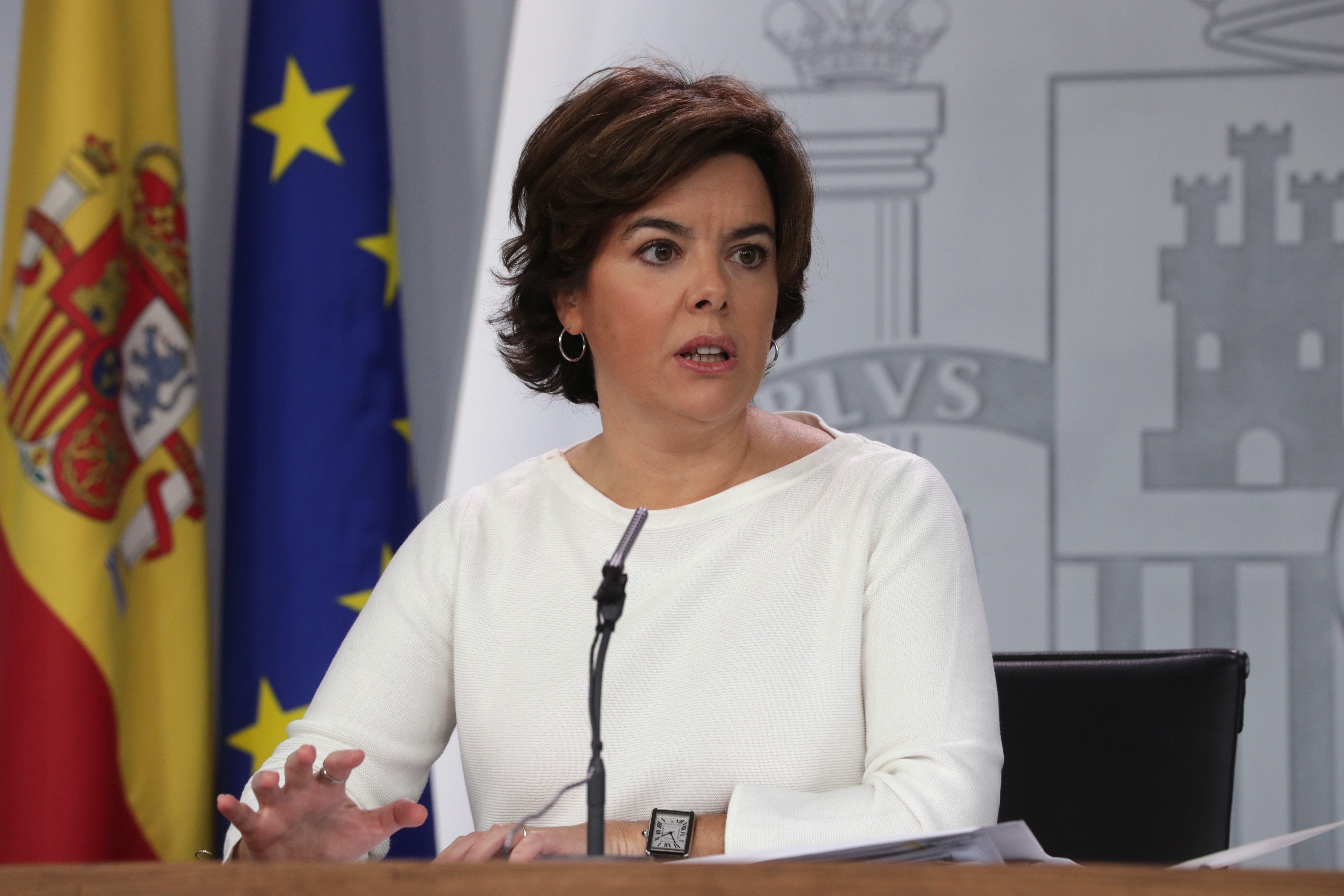The Spanish government has found an argument in the drip of companies moving their formal head offices out of Catalonia to try and spoil independence plans. Spanish deputy prime minister Soraya Sáenz de Santamaría warned Catalan president Carles Puigdemont to take this into account this weekend as he considers his response to the central government's demand for information. He has until Monday to answer a question as to whether Catalan independence was formally declared on Tuesday or not. If it was, that's the first step for the central government to enact article 155 of the Spanish Constitution and take direct control of Catalonia. According to Santamaría, the decision as to whether to avoid later, undefined measures falls upon the Catalan leadership. If they reply they did declare independence, measures may have to be taken, if not, they can return to the "institutional normality" of before the passing of the referendum laws on 6th and 7th September.
"The economic recovery and job creation are at risk. A fall of 10 per cent in investments has taken place, as has a dramatic fall in tourism. The Catalan government is creating all the conditions for a sharp deceleration. Catalonia could enter into recession", warned Santamaría in a press conference after the cabinet meeting she led this Friday in the absence of government spokesperson Íñigo Méndez de Vigo for personal reasons. By coincidence, it's almost exactly a year since Santamaría passed the role of spokesperson over to De Vigo.
Santamaría insinuated that bilateral dialogue can only take place depending on the response given by Puigdemont to their message. "A simple response to a complex problem", she said, as the Catalan government is asked for a yes or no answer. If the president's speech to Parliament is given as their response, that would be considered unsatisfactory and they would move forwards towards enacting article 155. Asked for details of what specific intervention would take place through the article, the minister replied that they "would go step-by-step", not revealing anything.
One part of the plan known is that Rajoy wants to maintain the coordination with opposition leader Pedro Sánchez when moving ahead with applying the article. "Throughout all these weeks we've maintained contact with PSOE [Spanish Socialist Workers' Party] to discuss [the issue]. A climate has been forged to work together looking for a better solution", said the deputy prime minister about support from the centre-left party, which has been a priority during this period after the memories of the division after the reforms to Catalonia's Statute of Autonomy in 2005.
If Puigdemont decides to accept the "most important, most immediate opportunity" to return to "coexistence" and the "framework of the law", which Santamaría believes was lost with the passing of the laws for the referendum, according to the deputy prime minister he will have a chance to go to the Spanish Congress to look for a political offer. That would mean dialogue that was not bilateral between the governments. It does, however, have some relation to the Spanish government's agreement with PSOE to study the possibility of constitutional reform.
Asked by El Nacional whether the Catalan government's gesture could be understood as a political strategy to make the central government seem silent in the eyes of the European Union, Santamaría argued that it won't. "How do you sell it to the international community that you don't want to return to the law? How do you explain to any democratic state, that has a separation of powers and has its parliaments, that the Catalan president doesn't want to appear [in the Congress] and doesn't want to follow the law," was her response.

